Election 2019: What younger disabled people want
- Published
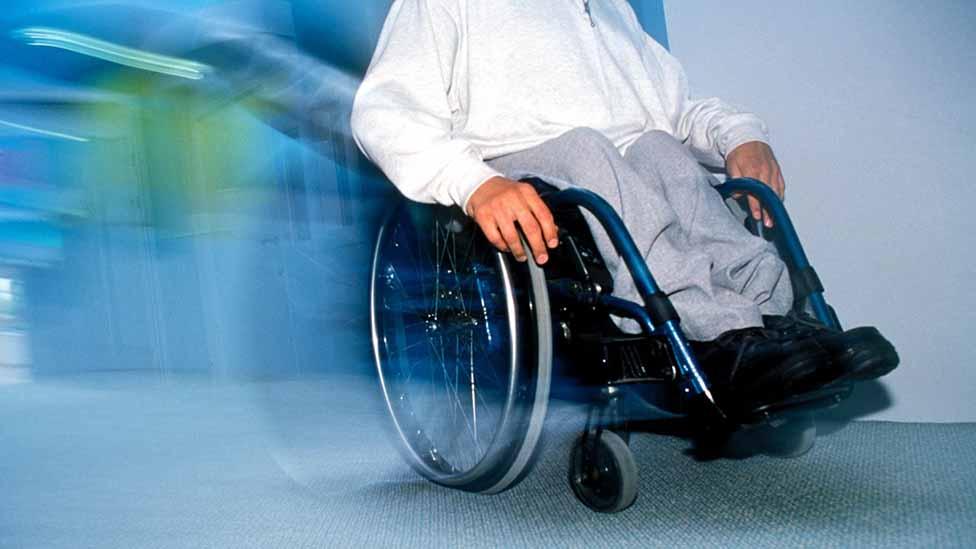
The election campaign has divided opinion on issues like climate change and the future of the NHS, but with almost 14 million disabled people in the UK many younger people feel disability is not even on the political agenda.
Here's a snapshot of some of their concerns.

Gabby
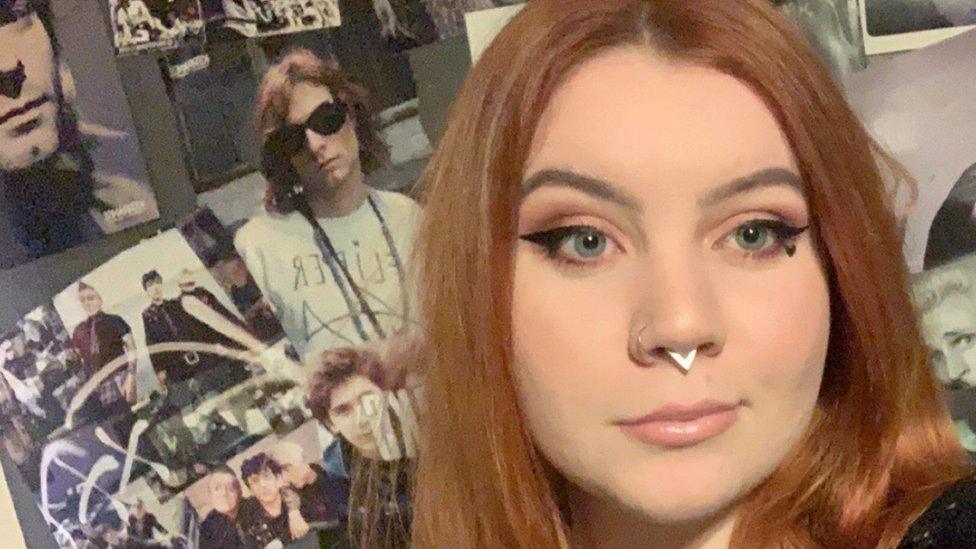
Gabby wants to see Mental Health education taught in schools
Gabby Breen, 17, a college student from The Wirral, was recently diagnosed with clinical depression but had difficulties getting support from CAMHS - Child and adolescent mental health services - from the NHS.
She wants to see better access to support, shorter waiting times and for the transition between child and adult services to be smoother.
"I get that CAMHS are really over-stretched and underfunded and the counsellors and the therapists are doing the best job they can," she says, but adds she had to wait six months to be seen and then received just six weeks of therapy.
Gabby turned to Action for Children which provided her with the support CAMHS couldn't.
She was told she would have to wait up to eight months to be seen by CAMHS, external - but she would turn 18 before then so wouldn't be eligible for children's services. Instead, she would have to be transferred to the adult waiting list, which could take even longer.
Gabby wants to see serious reforms in CAMHS "so that no one has to feel like they're being pushed aside or brushed off".

Penelope
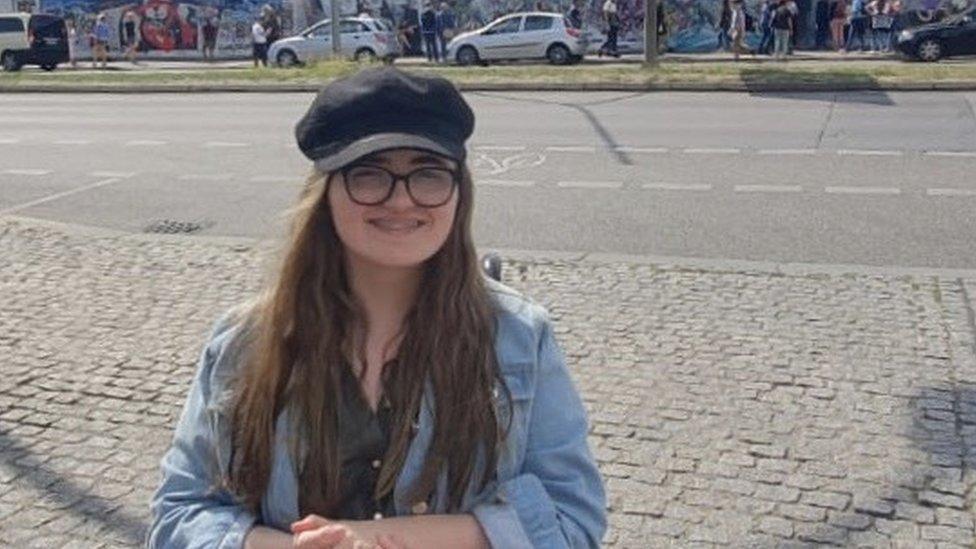
Penelope wants to see reforms in the benefit system
An A-level student from Derby, Penelope Harrison, 17, has cerebral palsy (CP) and uses a powerchair.
She's too young to vote this time, but has followed the politics keenly and says the lack of details in the party pledges are unhelpful.
"Manifestoes say 'we will fight for disabled rights' but what does that mean? It's like saying here's a cake. But what kind of cake is it? What if I'm allergic to it?"
Despite her age, she knows what she'd like to see - "the current PIP needs to change".
PIP (Personal Independence Payment) is a benefit that helps with the extra costs you have as a disabled person. It replaced Disability Living Allowance but its roll-out has been controversial.
Many people who apply are physically assessed by a health professional through tests including pushing against their hand, but those carrying out the assessments aren't necessarily specialists in disability.
"I remember [an assessor] asking me when the cerebral palsy would go away," says Penelope.

Ben
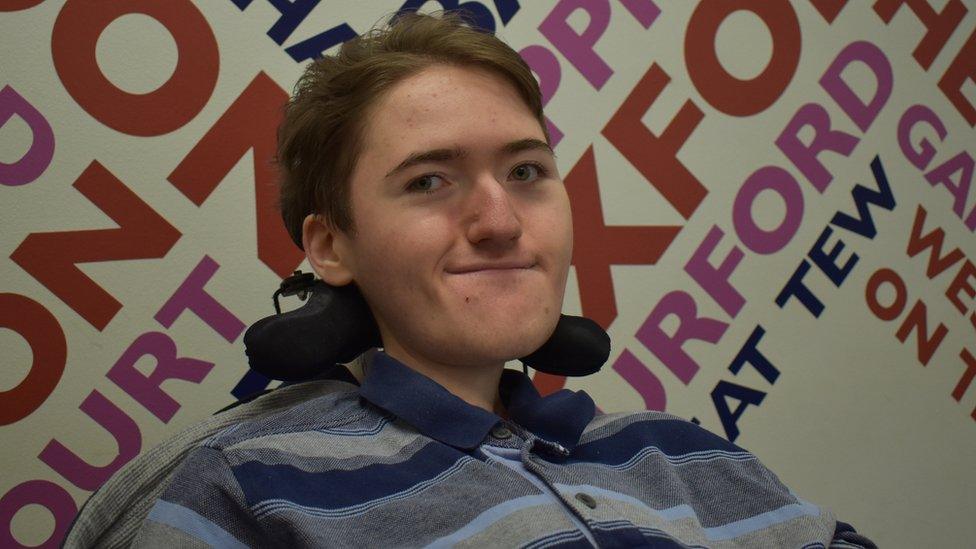
Ben is thriving at university, but is anxious for his future.
Ben Morris, a powerchair user from Swindon, will vote for the first time on 12 December.
The journalism student has recently taken full responsibility for arranging his 24-hour care needs, including feeding and dressing, after he turned 18.
Like Gabby, he wants to see changes in the way young people transfer from children's to adult services. While the NHS shifts you from a paediatric to an adult hospital setting, you have to arrange and maintain your own care needs at home.
He says the move is "the scariest thing in the world" but "the alternative would be that all services would just end, and you're stuck".
Ben, who has the muscle wasting condition spinal muscular atrophy, has slowly transitioned from the age of 14 so it didn't happen suddenly, but he felt the change keenly.
Just before he turned 18, he was taken aback when one doctor "started talking about end of life care".
He says: "I'm 17. I'm just a kid who is trying to get through his A-levels. There's just way too much pressure for young disabled people. Something needs to change."


CONFUSED? Our simple election guide, external
POLICY GUIDE: Who should I vote for?, external
POSTCODE SEARCH: Find your local candidates, external

Diya
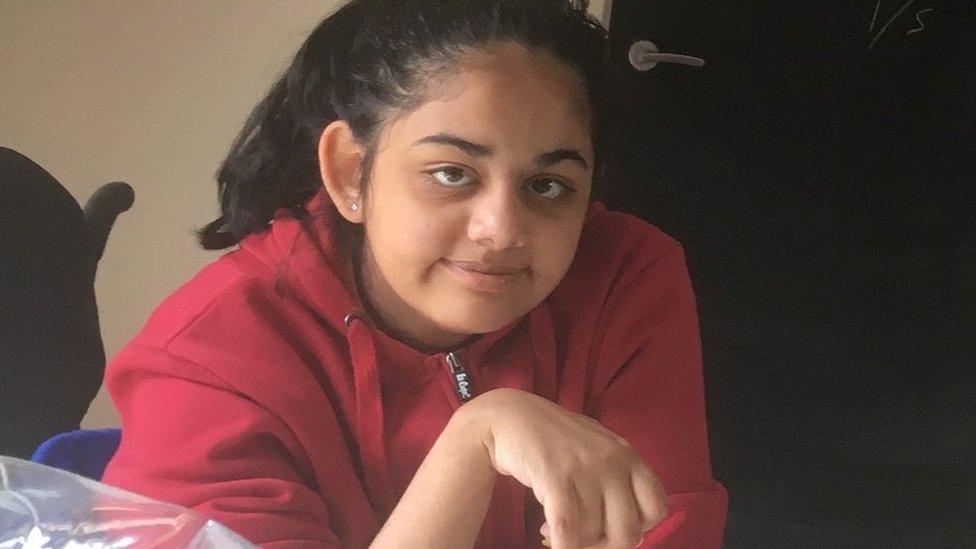
Diya wants to be an air traffic controller, in the future.
Sixth form student Diya Sharma, 17, from Ashford, Kent, is anxious about her future and the jobs market. She has muscular dystrophy and is a wheelchair-user.
"I would like to be an air traffic controller," she says. The job requires good vision and fitness but Diya is worried she may be turned away because she is disabled.
Although the Equality Act 2010 says it's unlawful for an employer to discriminate against disabled people, Diya's feelings are understandable.
Only 51.8% of disabled people are in employment, compared with 89.6% of non-disabled people according to the Trades Union Congress and the Office for National Statistics (ONS) who recently reported disabled people are, on average, paid 12.2% less than their non-disabled counterparts.

Lucy
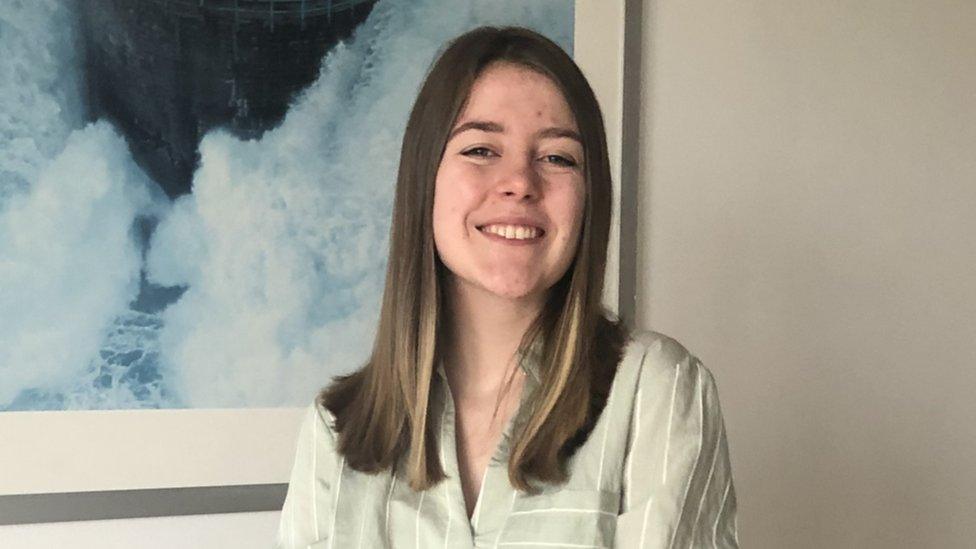
Lucy Taylor wants everyone to have the opportunity to learn British Sign Language
Lucy Taylor, 16, from Scotland, is profoundly deaf, and frustrated that basic needs are inaccessible even though solutions exist.
For example, although she asks her doctor's surgery to display her name on a screen when she is being called for appointment, they don't.
"The doctor will still come out and shout my name," she says. "If my mum was not there then I would have missed my appointment."
Lucy wants to be "independent" and says everyone should have training, especially in the workplace, to help deaf people communicate.
"All it takes is a bit more understanding of a deaf person's communication needs and the world of work will be a fairer place."

Niamh
Niamh Williams, 17, from Caerphilly, South Wales has been blind since birth.
She is currently studying A levels at college. Its Special Educational Needs department provide her with help including a support worker.
Once Niamh turns 18 she will have the opportunity to learn independent living skills, like cooking, but is worried as some colleges and charities are cutting back or closing. "Blind people may lose the ability to take part in everyday tasks," she says.
She also wants improvements to public transport such as audio-visual announcements on-board buses so she knows which stop she's at.
"I know they have them in Cardiff and London but in areas like Caerphilly, we don't have those facilities.
"It's all about equality. We should all have the same access."

James
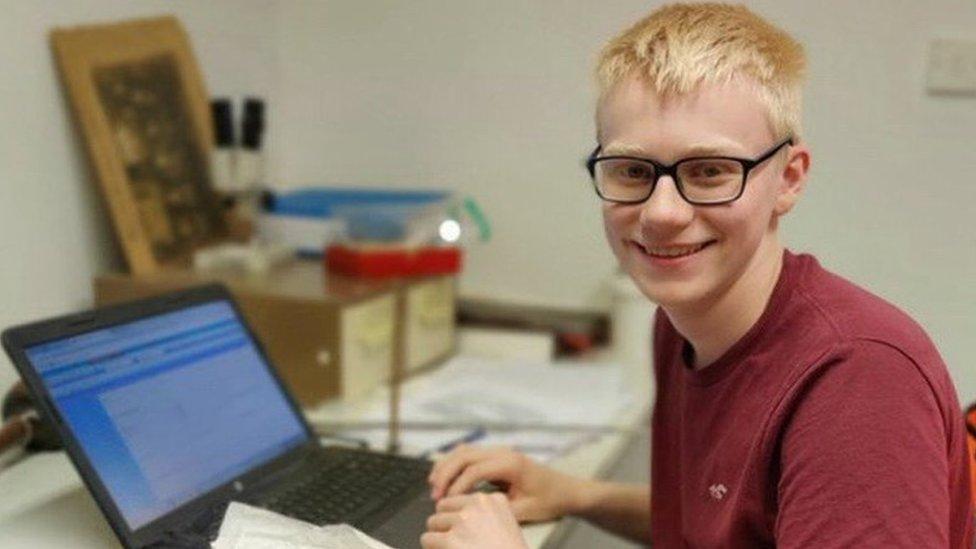
While James is looking forward to university, he still doesn't want his favourite para-sports to be cut
In Northern Ireland, 16-year-old James Douglas has albinism which means he has reduced eyesight and no pigment in his skin or hair. He's anxious about losing the accessible passtimes he enjoys.
"I take part in some blind sports clubs," he says. "But the funding just hasn't been there in the last few years."
Money, needed for things like travel and competitions, is raised individually but James says it should receive government support.
Without it, his favourite sport, Goalball - a hybrid of football and bowling designed for people with visual impairments - may not continue in his area.
"For years I didn't do any sports at all because I couldn't compete with my sighted peers.
"To see such great opportunities like that fade away because of fairly unrelated politics is sad."
So James must make his vote count.
"I am petrified," he says. "I just care too much."
Nikki Fox on the hurdles and options for disabled voters
For more Disability News, follow BBC Ouch on Twitter, external and Facebook, external, and subscribe to the podcast.
